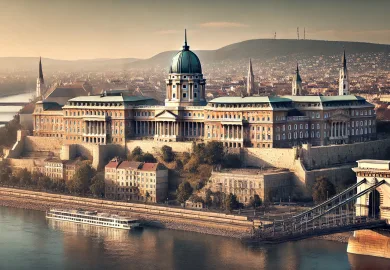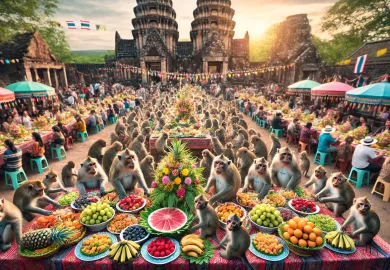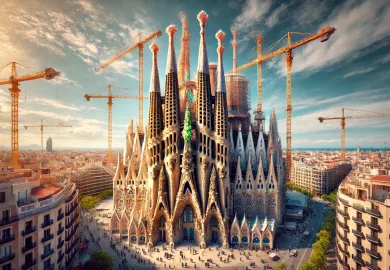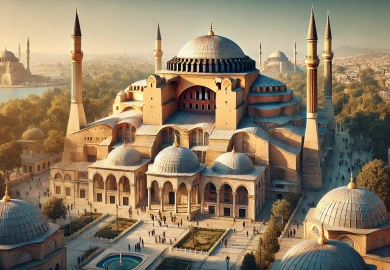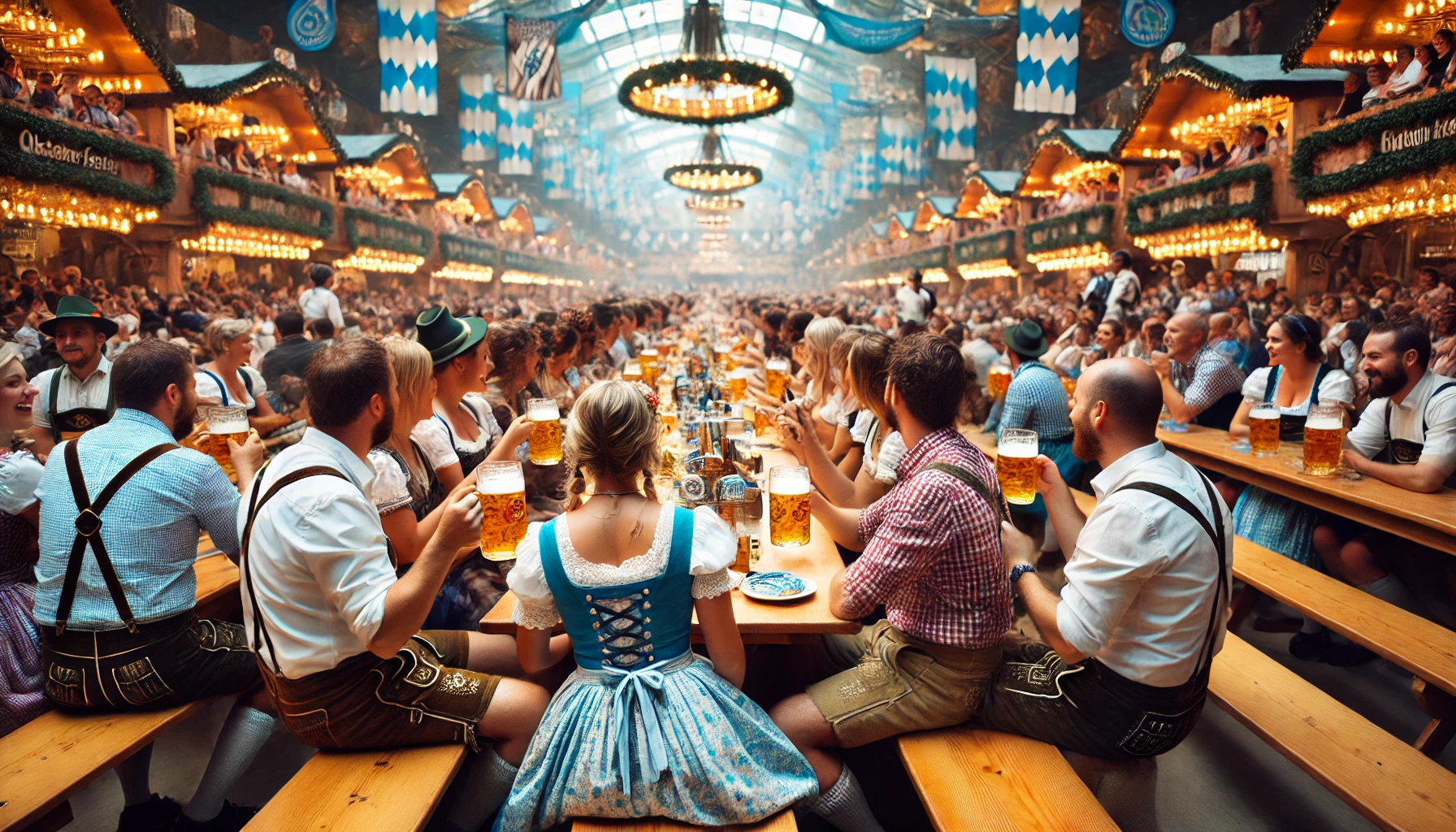
The Oktoberfest is one of the most famous traditional festivals in the world, drawing millions of visitors annually to Munich, Germany. It’s a vibrant celebration of Bavarian culture, where locals and tourists alike gather to enjoy music, beer, food, and centuries-old traditions. This festival has grown from a local event into a global phenomenon, making it a must-experience for anyone seeking a blend of history, culture, and sheer festivity.
Originating in the early 19th century, Oktoberfest has maintained its charm while evolving into a modern spectacle that reflects both the heritage and the contemporary spirit of Bavaria. In this article, we’ll explore the history of this iconic festival, its unique customs, and why it remains one of the top attractions for travelers worldwide.
A Brief History of Oktoberfest
The story of Oktoberfest begins in 1810 when Munich hosted a grand celebration in honor of the marriage between Crown Prince Ludwig of Bavaria and Princess Therese of Saxony-Hildburghausen. This royal wedding marked the birth of the festival, which was initially a horse race attended by the citizens of Munich. The event was so successful that it became an annual tradition, eventually expanding to include more entertainment, such as agricultural shows, games, and, of course, beer.
Over the decades, Oktoberfest evolved into a massive cultural event. By the late 19th century, beer tents were introduced, solidifying the festival’s reputation as the ultimate beer celebration. Today, Oktoberfest spans 16-18 days, typically starting in mid-September and concluding in the first weekend of October, attracting over 6 million people from across the globe.
Despite its global fame, Oktoberfest has managed to preserve its Bavarian roots. Visitors can enjoy traditional folk music, wear authentic Bavarian costumes such as lederhosen for men and dirndls for women, and indulge in local delicacies like pretzels, sausages, and roast chicken. The festival truly encapsulates the essence of Bavarian culture.
Beer Tents and Breweries: The Heart of the Festival
One cannot talk about Oktoberfest without mentioning the legendary beer tents. These tents, some of which can accommodate up to 10,000 people, are the epicenter of the festival’s celebration. Only six breweries are allowed to serve beer at Oktoberfest: Augustiner, Hacker-Pschorr, Löwenbräu, Paulaner, Spaten, and Hofbräu, all of which are Munich-based. Each of these breweries produces a special Oktoberfestbier, a Märzen-style beer brewed specifically for the event, and known for its rich malty flavor and higher alcohol content.
The atmosphere inside the beer tents is nothing short of electric. Bands play lively Bavarian folk songs while revelers dance on tables, clink their steins, and join in on cheerful chants of “Ein Prosit” — a toast to good health. Outside the tents, food stalls and amusement rides offer a break from the beer-filled festivities, providing a family-friendly experience.
It’s important to note that, despite its reputation as a beer-centric festival, Oktoberfest is a well-rounded event that offers something for everyone. Whether you’re a beer enthusiast, a foodie, or a history buff, there’s plenty to enjoy.
Traditional Clothing: The Charm of Bavarian Attire
One of the most distinctive aspects of Oktoberfest is the traditional clothing worn by festival-goers. Both locals and tourists embrace the Bavarian culture by dressing up in lederhosen (leather trousers) for men and dirndls (traditional dresses) for women. These outfits add to the festival’s authenticity and create a visually stunning sea of colorful fabrics, especially when worn by thousands of people at once.
The lederhosen are often accompanied by suspenders, knee-high socks, and sturdy shoes, reflecting the traditional attire of Bavarian farmers and laborers. The dirndl, on the other hand, consists of a bodice, blouse, full skirt, and apron, with different styles representing various regions and even marital statuses. For instance, the placement of a woman’s apron bow can indicate whether she is single, married, or engaged.
Wearing traditional Bavarian attire at Oktoberfest not only enhances the experience but also pays homage to the centuries-old customs that have shaped Bavarian society. Many visitors feel a deeper connection to the festival’s cultural roots by donning these costumes, making it an essential part of the Oktoberfest experience.
The Oktoberfest Beyond Munich: A Global Celebration
While Munich is the birthplace and heart of Oktoberfest, the festival’s influence has spread far beyond Bavaria. Oktoberfest celebrations are now held in cities across the world, from New York to Tokyo, allowing people from different cultures to partake in the Bavarian tradition.
The most notable of these international celebrations is Kitchener-Waterloo Oktoberfest in Canada, the largest Oktoberfest outside of Germany. Other major cities, such as Cincinnati in the United States and Brisbane in Australia, also host their versions of the festival, complete with traditional music, food, and beer.
These international celebrations, while not as grand as the original, capture the essence of Oktoberfest and allow people worldwide to experience Bavarian culture without traveling to Munich. They demonstrate how the festival has evolved from a local event into a global cultural phenomenon, uniting people across borders through a shared appreciation for tradition and festivity.
Why Oktoberfest Should Be on Your Travel Bucket List
For travelers seeking an unforgettable cultural experience, Oktoberfest is a must-visit event. Beyond the beer, food, and festivities, Oktoberfest offers a unique glimpse into Bavarian traditions, with its rich history, distinctive music, and vibrant customs. It’s an opportunity to experience firsthand the hospitality and warmth of the Bavarian people, who welcome millions of visitors each year to join in the celebration.
Oktoberfest is also a family-friendly event, with a wide range of activities catering to people of all ages. From carnival rides and games to live performances and cultural exhibitions, there’s something for everyone at the world’s largest folk festival.
In conclusion, Oktoberfest is much more than just a beer festival — it’s a celebration of Bavarian culture that has become a symbol of unity, joy, and tradition. Whether you’re attending the original festival in Munich or one of its international counterparts, the spirit of Oktoberfest remains the same: a festive tribute to the enduring appeal of Bavarian heritage.
Warm and Welcoming People
In Germany, one of the most cherished aspects that visitors frequently remark on is the warmth and hospitality of its people. The locals of Germany have a deeply rooted tradition of welcoming outsiders with open arms, a practice embedded in the culture for generations. This warm reception goes beyond just friendly smiles; it’s about genuine interest and respect, making tourists feel at home from the moment they arrive.
Whether in bustling cities or quaint rural villages, the people of Germany are known for going out of their way to make visitors feel comfortable. It’s common for locals to offer directions, share insights about hidden spots, or even invite travelers for a meal. This openness to strangers is not only a mark of respect but also a way to share their culture and heritage, allowing tourists to experience the authentic soul of the country.
This warmth makes a visit to Germany more than just a journey to a new place; it becomes a memorable experience of human connection. By the end of their stay, many travelers feel they’re leaving not just a beautiful landscape but also newfound friends. It’s this unique combination of natural beauty and heartfelt hospitality that makes Germany an unforgettable destination, resonating in the memories of everyone who has had the pleasure of experiencing it.




